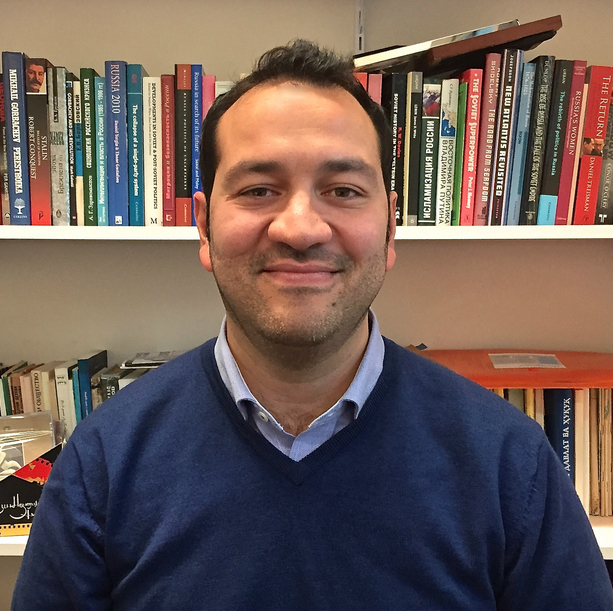Egypt’s Long-term Stability and the Role of the European Union
Editor’s Note: This article originally appeared on Order from Chaos.
In Europe, the combination of the migration crisis, terrorist threats, economic pressures, and the rise of the populist far-right have highlighted the fact that instability in the Middle East has a direct bearing on stability in the West.
Published by The Lawfare Institute
in Cooperation With

Editor’s Note: This article originally appeared on Order from Chaos.
In Europe, the combination of the migration crisis, terrorist threats, economic pressures, and the rise of the populist far-right have highlighted the fact that instability in the Middle East has a direct bearing on stability in the West.
Egypt—a country of 97 million people with a GDP of over $336 billion and a longstanding role in mediating peace efforts in its region—is a critical partner to Europe in finding solutions to transnational challenges in the Euro-Mediterranean region. Europe, for its part, has a deep interest in enhancing security and stability in Egypt, which faces a multitude of socio-economic challenges and an insurgency in the Sinai, all unfolding in an increasingly authoritarian context.
In a comprehensive new study I conducted for the European Parliament titled “A stable Egypt for a stable region: socio-economic challenges and prospects,” I examine some of the key socio-economic, political, security, and environmental drivers of instability in Egypt over the next five decades. The study also analyzes key aspects of EU-Egypt relations and provides policy recommendations on how the EU can support Egypt’s long-term stability and prosperity.
Demographics, Unemployment, and Climate Change: A Combustible Mix
One of Egypt’s main drivers of instability over the coming decades is population growth. The U.N. estimates that by 2050, Egypt’s population will reach 150 million; by 2100, a staggering 200 million. Government family planning policies have not succeeded in significantly curbing population growth. Population growth, coupled with an over-extended education system, has meant that Egyptian youth are increasingly unprepared and unable to enter the job market. As the population continues to grow, Egyptian urban centers will struggle to provide services such as housing, sanitation, health care, and education.
Meanwhile, the effects of climate change—higher temperatures, changes in rain patterns, higher sea levels, and potential increases in catastrophic weather events—create significant threats to communities and the agricultural sector in the Nile Delta, the major source of Egypt’s food production. Productive, arable land will also be under pressure to yield ever-greater amounts of food and grain, exacerbating water shortages. As the U.N. Development Programme (UNDP) projects, flooding in the Nile Delta and the subsequent decrease in agricultural production will also push down employment in the agricultural sector. Thus, climate change in Egypt can ultimately have implications for the health and well-being of communities (with heightened risk of malnutrition) and in turn, become a catalyst for poverty and social unrest.
Ambitious Economic Reforms, But Do They Help the People Who Need It Most?
Egyptian GDP growth has averaged 2 percent per year since 2011, when political instability began to rock the country. In an effort to encourage economic growth, the Egyptian government embarked on an ambitious economic reform plan starting in 2015
After several years of sluggish growth, there are some reasons for optimism: First, the flotation of the Egyptian pound lifted a major constraint on foreign currency liquidity and reined in the black market for foreign currency. Second, fiscal reforms have helped stabilize public finances. Third, the accelerated development of Egypt’s gas reserves, including the giant Zohr field, will likely improve the trade deficit and ensure domestic supply of energy for the next 10 years. This also creates a potentially lucrative export market in the future.
An unfortunate consequence of the ongoing reforms is the increased economic hardship they place on the majority of Egypt’s population. While floating the Egyptian pound did entice the return of some foreign investment, the currency also lost more than half of its value, sharply driving up the cost of living as prices for fuel, food, and public utilities reached unprecedented levels. July 2017 saw the annual inflation rate rise to a record 34.2 percent, with transportation costs rising by 36.7 percent, healthcare by 24 percent, and food and beverage costs by 43 percent. The inflation rate has since dropped to 17 percent, but the combination of higher inflation with the 14 percent value-added-tax (VAT); common goods have become increasingly unaffordable for poor Egyptians.
Political Crackdown
As the recent arrests of a number presidential candidates and opposition figures have shown, Egyptian politics has seen a resurgence in authoritarianism, which The Economist has described as “worse than Mubarak.”
The government has moved to consolidate its control of Egyptian media, with reports pointing to the intelligence services holding stakes in media companies. In 2016, President Abdel Fatah el-Sissi enacted a new media regulatory framework that created three government-dominated supervisory bodies, with sweeping powers over content and licensing, while providing few protections for the press. The president was brutally honest about his opinion on alternative political views. In a televised speech, he clearly stated: “Don’t listen to anyone’s words but me [sic].”
Sinai Insurgency
In the Sinai Peninsula, the ISIS-allied Ansar Beit al-Maqdis group has waged a years-long insurgency against security forces. Sinai has long been a fertile ground for extremist groups to grow and operate, partly due to the government’s neglect in developing the region and its inability to police the area’s rugged terrain.
The ongoing military operation “Sinai 2018,” uses brutal force in an attempt to eradicate terrorism in Sinai. The comprehensive deployment is targeting both terror cells and criminal organizations in the area. This is commendable, but to ensure the plan succeeds, hard power has to be combined with a long-term inclusive developmental approach. The security services treat the Bedouin who live in Sinai as part of the security threat, which is consistent with the government’s long history of treating the symptoms of terrorism, not its underlying socio-economic drivers.
EU-Egypt Relations: A Delicate Balance
The combination of all these challenges mean that over the coming decades, any potential instability in Egypt will likely have an impact on the Euro- Mediterranean region. The current EU-Egypt partnership priorities highlight Europe’s concerns of potential instability and covers three broad themes:
- Sustainable and inclusive economic growth;
- Stronger partnerships in foreign policy with a focus on stabilization of the common region; and
- Enhancing stability and security in Egypt.
In light of the socio-economic and political challenges I outline in the study, it will be increasingly difficult to execute these partnership priorities. Indeed, EU policy toward Egypt often appears to move from one crisis to another.
What Europe Can Do
There is much the EU can do to bolster Egypt’s stability in the short term. Yet if Europe seeks Egypt’s cooperation in the long term, then a joint approach on the issues of the day can and should be paired with a measured, but firm, emphasis on inclusive economic growth and support for human rights and the rule of law.
While there are certainly limits to the EU’s democratizing leverage over Egypt, taking a firm stance on human rights abuses and attacks on freedom of expression remains an important part of encouraging the leadership in Cairo to look beyond its own regime security and stability. The argument is clear: Authoritarianism can and will breed extremism, with dire consequences for the Egypt and the region.
With some concrete steps in favor of the rule of law, the EU can cautiously proceed on a number of fronts to shore up Egyptian socio-economic and political stability and help secure broader European interests.
First, EU programmatic assistance should focus support on inclusive economic programs that benefit youth and women, through initiatives such as the “EU Facility for Economic Growth and Job Creation” and the European Bank for Reconstruction and Development’s Small Business Programme. Increasing educational opportunities for programs such as Erasmus+ can help educate more young Egyptians and prepare them to enter the job market. In addition, EU programmatic assistance that focuses on vocational training can help ease pressure on the Egyptian university system and provide more career pathways for youth.
Second, the EU should also support Egypt’s ambitions to become a regional gas hub. For the EU, Egypt’s renewed prominence in energy production can enhance energy security, since European demand for gas is forecasted to continue growing as local production decreases. In addition, increased cooperation between states in the eastern Mediterranean and the EU can help enhance regional stability.
Third, the EU should support initiatives promoting the development and adoption of renewable energy sources in Egypt. In addition to mitigating the effects of climate change, renewable energy can curb rising pollution levels, which would improve the health and quality of life for the population while reducing the costs of healthcare associated with treating chronic illnesses caused by excessive pollution. Increased availability of renewable energy sources will also help stabilize Egypt in the long term by providing the population with more consistent and sustainable sources of energy.
Speak with One Voice
Finally, the EU’s engagement is likely to be more successful if EU member states undertake a unified approach toward Egypt. A key aspect of the EU’s weakness in engaging with Egypt is that individual member states have engaged with the country strongly at the bilateral level, which Egypt continues to prioritize over multilateral level engagement.
This is not unique to Egypt, but is an institutional weakness in the formulation of EU foreign policy that affects its relations with countries in North Africa and other areas of the world. For an overall EU approach to Egypt to have more impact, further cooperation and coordination between member states must occur. Until that occurs, Cairo will continue to deal directly with Paris, Rome and Berlin, bypassing Brussels all together.




